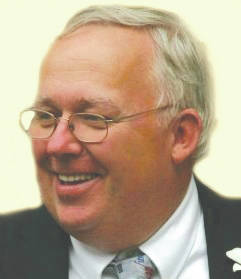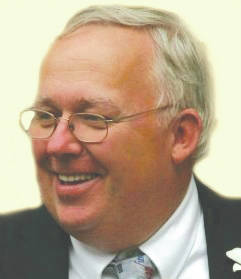

“Why” is the question everyone wants answered but no one wants to answer.
When I was a child, I would “why” my parents to death. From mundane questions like, “Why are we going to the store?” To weird stuff that simply popped into my mind, such as, “Why is there time?”
Mom was good for about three “why” questions, then the answer was always the same, “That’s just the way it is. Stop asking why.” I never inquired why she wanted me to stop asking.
My curiosity for why continued in my adult life. God placed me in the ministry, and I also retired from law enforcement. Both occupations require knowing “why.” Motive, the “why” behind a crime, is vital to solving a crime and bringing a criminal to justice. Within the ministry, knowing why people do things is essential to getting to the core of people’s problems. Example – it is impossible to help a couple put their marriage back together without knowing why it is falling apart.
“Why” questions will eventually make people feel uneasy; when the feeling of uneasiness sets in this is usually when the answers stop coming. Answering why we are going to the store, for example, will almost always receive an answer, but when the question is personal or something we wish not to think about, is when the “That’s just the way it is. Stop asking why” type answers start coming.
On a day when I was about eight years old, Mom was only good for one “why” question, “Why was the Bible written?”
“It tells us about God.”
“Why do we need to know about God?”
“We just do! Stop asking why.”
My childlike inquisitive brain was swirling. What does the Bible tell us about God? Why do we need to know? Who wrote it down? How does the guy that wrote the Bible know so much about God? Has he talked to God? How can I go and see God and ask Him why things are the way they are?
Mom was probably pleased with the silence that was now engulfing the room, but I went to bed that night a puzzled little boy.
In the fifty or so years since then, I have found the answers to those questions. I discovered all those answers in the Bible itself. The Bible even answers the question about the purpose of its writing. It gives four reasons (at least that is what I have seen so far).
The four reasons the Bible gives for being written:
1. To convince the world that Jesus is the Son of God. John 20:31, “But these are written, that ye might believe that Jesus is the Christ, the Son of God; and that believing ye might have life through his name.”
2. For us to learn, grow in patience, gain comfort from God, and from all this, give our life hope. Romans 15:4, “For whatsoever things were written aforetime were written for our learning, that we through patience and comfort of the scriptures might have hope.”
3. So we may learn from the mistakes (sins) and experiences of those who came before us. 1 Corinthians 10:11, “Now all these things happened unto them for ensamples: and they are written for our admonition, upon whom the ends of the world are come.”
4. So people can know, for sure, without a doubt, that they have eternal life. 1 John 5:13, “These things have I written unto you that believe on the name of the Son of God; that ye may know that ye have eternal life, and that ye may believe on the name of the Son of God.”
On this last one, do you know that you have eternal life?
Jesus died for your sins. If you place your faith in Him and what He did for your salvation you have eternal life. John 3:16, “For God so loved the world, that he gave his only begotten Son, that whosoever believeth in him should not perish, but have everlasting life.”
If you put your trust in a religious experience, or the fact that there are specific sins you have not committed, or that generally, your good side outweighs the evil side; if you trust in anything other than Jesus Christ then you can never “know” you have salvation. What if your baptism was not enough? What if you have not done enough good things? What if your good does not outweigh the bad enough? If you trust in anything other than Christ, those questions will always be there, causing doubt.
If baptism (or any other religious experience), or being a good person, or not being an awful person is how we obtain salvation, then we can never be sure we have eternal life. We can never actually know and if we can never know for sure then 1 John 5:13 is false. Therefore, salvation must rest in Christ.
Do you know you have eternal life? If not – why?





